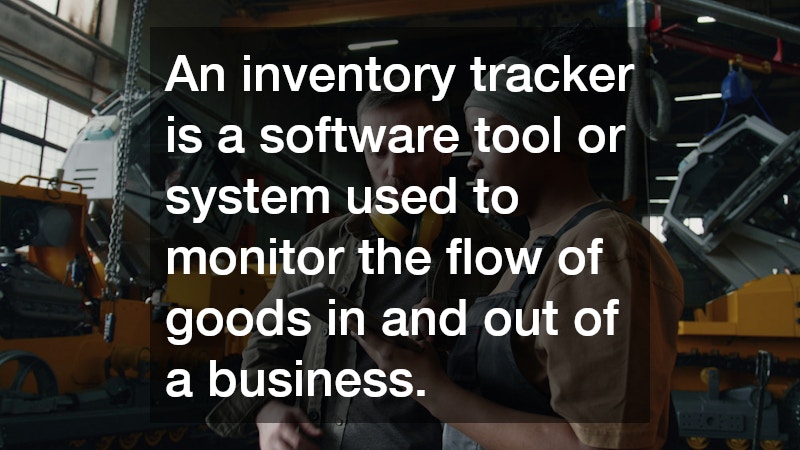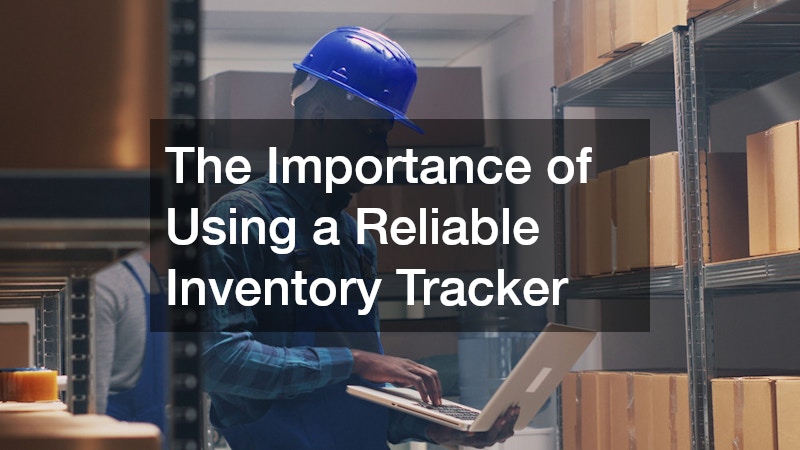In today’s fast-paced business environment, managing inventory efficiently is no longer a luxury—it’s a necessity. Whether you’re running a small e-commerce store or a large-scale distribution center, having the right systems in place can mean the difference between profit and loss. One of the most essential tools in effective inventory management is a reliable inventory tracker. This tool helps businesses streamline operations, reduce human error, and make better decisions based on accurate data.
What Is an Inventory Tracker?
An inventory tracker is a software tool or system used to monitor the flow of goods in and out of a business. It keeps a record of products in stock, items sold, items on order, and more.
Modern inventory trackers often integrate with point-of-sale systems, e-commerce platforms, and even supply chain software to provide real-time visibility into a business’s stock levels and inventory trends.
While simple inventory tracking can be done manually or via spreadsheets, this method is highly prone to errors, especially as a business grows. Relying on outdated or inconsistent data can lead to overstocking, understocking, lost sales, or wasted resources—all of which eat into profitability.
Benefits of a Reliable Inventory Tracker
1. Accuracy and Real-Time Updates
One of the primary advantages of using a reliable inventory tracker is the ability to maintain accurate and real-time information about your inventory. Inaccurate stock data can cause serious issues—such as selling products that are no longer in stock, which can lead to customer dissatisfaction and lost business. With an automated tracker, you always know what’s available, what needs to be reordered, and what items are slow-moving.
2. Improved Efficiency
Manual tracking methods are not only time-consuming but also inefficient. A reliable inventory tracker automates much of the process, allowing your team to focus on more strategic tasks. By reducing the time spent on routine inventory checks, your business can allocate resources more effectively, leading to improved productivity across departments.
3. Better Decision Making
An effective inventory tracking system offers detailed reports and analytics that help managers make informed decisions. Whether it’s identifying top-selling products, forecasting demand, or managing supplier lead times, having access to historical and real-time data empowers better planning and budgeting. These insights can also help reduce waste and ensure that capital is not tied up in unsold stock.
4. Reduction in Inventory Shrinkage
Inventory shrinkage—caused by theft, loss, damage, or administrative errors—is a common issue in many businesses. A good inventory tracker minimizes this risk by providing a clear audit trail for every item. You can track when and where items were moved, sold, or received, making it easier to identify discrepancies and take corrective actions.
5. Improved Customer Satisfaction
Customers expect fast delivery, real-time order updates, and accurate product availability. If your inventory system is unreliable, you risk disappointing customers and damaging your reputation. A reliable inventory tracker helps ensure that customer orders are fulfilled correctly and promptly, contributing to a better customer experience and increased loyalty.
6. Scalability
As your business grows, so does the complexity of your inventory. A manual or basic tracking system may work for a small business with limited products, but it quickly becomes inadequate as product lines expand or sales channels multiply. A reliable inventory tracker is scalable and can grow with your business, allowing you to manage thousands of SKUs, warehouses, and sales platforms seamlessly.
Key Features to Look for in an Inventory Tracker
Not all inventory trackers are created equal. When choosing a solution, consider the following key features:
-
Real-time tracking: Ensures up-to-date inventory levels across all locations.
-
Multi-location support: Ideal for businesses with multiple warehouses or retail outlets.
-
Integration capabilities: Should connect with your sales, accounting, and shipping systems.
-
Reporting and analytics: Provides insights to support strategic decision-making.
-
User-friendly interface: Makes it easy for staff to use with minimal training.
-
Mobile access: Allows inventory tracking on the go.
Conclusion
Investing in a reliable inventory tracker is one of the smartest decisions a business can make. The cost of implementing such a system is far outweighed by the benefits in accuracy, efficiency, and customer satisfaction. As competition continues to intensify across industries, businesses that leverage technology to streamline their operations will have a distinct edge.
In the long run, an inventory tracker does more than just count products—it becomes a vital part of your business intelligence toolkit, guiding smarter decisions and fostering sustainable growth. Whether you’re a startup or a seasoned enterprise, don’t leave your inventory management to chance. Choose a tool that’s reliable, scalable, and built to support your success.




